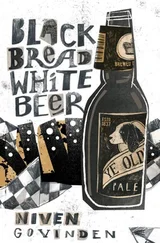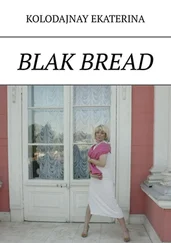Emili Teixidor - Black Bread
Здесь есть возможность читать онлайн «Emili Teixidor - Black Bread» весь текст электронной книги совершенно бесплатно (целиком полную версию без сокращений). В некоторых случаях можно слушать аудио, скачать через торрент в формате fb2 и присутствует краткое содержание. Год выпуска: 2016, Издательство: Biblioasis, Жанр: Современная проза, на английском языке. Описание произведения, (предисловие) а так же отзывы посетителей доступны на портале библиотеки ЛибКат.
- Название:Black Bread
- Автор:
- Издательство:Biblioasis
- Жанр:
- Год:2016
- ISBN:нет данных
- Рейтинг книги:3 / 5. Голосов: 1
-
Избранное:Добавить в избранное
- Отзывы:
-
Ваша оценка:
- 60
- 1
- 2
- 3
- 4
- 5
Black Bread: краткое содержание, описание и аннотация
Предлагаем к чтению аннотацию, описание, краткое содержание или предисловие (зависит от того, что написал сам автор книги «Black Bread»). Если вы не нашли необходимую информацию о книге — напишите в комментариях, мы постараемся отыскать её.
Born in 1933,
's first novel,
, was published to tremendous acclaim in 1988, followed by several more which established him as one of Spain's greatest contemporary authors.
Black Bread — читать онлайн бесплатно полную книгу (весь текст) целиком
Ниже представлен текст книги, разбитый по страницам. Система сохранения места последней прочитанной страницы, позволяет с удобством читать онлайн бесплатно книгу «Black Bread», без необходимости каждый раз заново искать на чём Вы остановились. Поставьте закладку, и сможете в любой момент перейти на страницу, на которой закончили чтение.
Интервал:
Закладка:
In my view, he’d wanted to say something about the task of the teacher, a kind of praise for the importance of teaching snotty kids — Grandmother sometimes called us snotty runts and said we stop being that when we cleaned away our snot and she occasionally referred to classes at the infant school as the snot-nose or dirty-pants brigade, and when somebody mentioned a word or phrase only approximately following the sound, as when someone in the village said intransigent for in transit, she said they spoke in snotty sounds or as it sounds, and I thought he was trying to establish continuity between his labours and those of the teacher who’d take his place, a little like the parish priests and Superiors of religious orders — Father Tafalla always said that — it didn’t matter who stood before the parish or the community, or the school in this case, it was continuity and constancy in our work that counted, individuals came and went but institutions went on forever, institutions, a word I’d never heard used in either of my two schools, though it was always on the lips of priests in church, were over and above individuals, an expression I struggled to understand because I couldn’t imagine what importance or what use a church or school could have without individuals, an obvious example was the hermitages scattered over the plain — where Saint George and Saint Francis had died by the small spring that appeared miraculously because the saint was dying of thirst when he walked past that spot, the Casserres monastery with the holy body of a child embalmed like a mummy, that they said was once a grandiose monastery, thronging with hundreds of monks and extremely influential in bygone times… What were they now if not abandoned, half-ruined, useless buildings, where solitary images of saints and Virgin Marys draped dirty, crumbling altars, cobwebby naves full of creepy-crawlies, sometimes transformed into animal pens or dung heaps…that without people, priests or a village were no use at all, were nothing at all, nonentities, mere relics of a dead past that had been buried forever?
What indeed would become of the very school we attended — la Novíssima — if all its pupils were moved to the national school in the nearby town? So what then did teachers and priests mean when they said there were things like institutions that were above individuals and more important than people? However, I think Mr. Madern, the teacher, had meant to say in his last lesson that the school still survived though the master who had given it life in those borderlands between France and Germany, Alsace-Lorraine, was now forced to leave, something I really didn’t understand. There were things I didn’t grasp, that I couldn’t get my head round, and anything that went beyond the boundary of individuals was of no interest to me, and perhaps that was why I understood nothing I couldn’t imagine as a person of flesh and blood. For example, when they spoke of justice, I always imagined judges and prisons with Father inside, when they spoke of wealth, I saw Mr. and Mrs. Manubens, the masters, or Napkin Lolita and the factory owners once a month dropping by their offices in their shiny new cars, when they spoke of illness, I always imagined the stark naked, languid youth lying in the heartsease garden, under the elm tree, and likewise with everything else. That was why I had great problems with religion, because I was beginning to suspect that everything I imagined when I heard priests talking about heaven, hell, God the Father, God the Son, God the Holy Spirit and the Most Holy Trinity, and the whole celestial gang — a phrase Dad Quirze used when he was swearing — didn’t exist beyond First Communion prints or statues in church that bored me, I’d seen so much of them that even now I found they were caricatures or childish efforts, and I wondered: if there was something superior and more important than people, why did they represent heaven and hell everywhere with images that were only the faces of individuals who looked like figures straight out of a Bethlehem crib and who, if it weren’t for their clothes, looked just like us? Where then was the institution they kept talking about if they couldn’t make it visible without the help of people? They even explained eternity, such a hazy concept, by recourse to the figure of a child trying to empty out the sea with a small saucepan, and however many years and centuries the child spent extracting water, supposing that one day, when the boy was an old man and had spent his life, plus his children’s, grandchildren’s and great-grandchildren’s, extracting water nonstop from the sea, they still wouldn’t have scratched the surface of the time that eternity endured, that never ends, that we cannot conceive, that means forever and ever and ever. And if we cannot even conceive of the extent of eternity because it doesn’t possess one, everything was eternity, was the ever more of ever more, how could that invention that went by the name of Institutions be at all important for flesh-and-blood individuals — Father in prison, the owners in their factories, the lad dying from TB in the monastery garden? What were Politics, the Church, Grandmother’s idee-as and idee-als , the State, the Fatherland the teacher in Alsace-Lorraine defended in his last lesson…if not thoughts without bodily substance? If institutions couldn’t live without individuals, how dare they say they were above flesh-and-blood men and women?
There was one other thing that worried me about the teacher’s last lesson. It was an invention like eternity and that was why I regretted not paying enough attention so as to catch what he’d meant to say through that story of an expelled teacher giving his last lesson in the school in Alsace-Lorraine. It was the feeling of loss the French teacher experienced, a feeling, I understood from what our teacher Mr. Madern read, that wasn’t limited to the fact he was being forced to leave his beloved school and change pupils and place, but referred to something much more profound and intense that, although I could account for it, I guessed was linked to the name of Alsace-Lorraine. Was Alsace-Lorraine lost because France lost the war, I wondered? No, it wasn’t lost, it simply ceased to be French and began to be German. All that was lost was the French teacher and the pupils who liked him. But those who didn’t like him, those who’d discovered he had a defect, a blemish, as Grandmother called it, an individual act of treachery, as I had with Mr. Madern, even if I thought he was a good teacher, why should they lament his departure so vociferously? At the end of the day the change was simply annoying and I thought the teacher’s speech in his last lesson was overblown and self-interested.
Later on I reflected further about such issues and concluded that the problem arose when the different representations you were shown to help you understand the big concepts — institution, religion, justice, illness, wealth, poverty… — were mixed up with other images you didn’t expect to be at all connected, yet if they appeared in your mind allied to those initial figures, though you hadn’t summoned them on purpose, there was, in fact, a connection and this mix of images and concepts sent your head into spin, erased the boundaries of the representations and feelings they provoked, and that was the only way you could understand the sorrow of the French teacher in the Alsace-Lorraine school because his suffering over the loss of France was additional to his grief at being forced to abandon his work and all that became entangled with the image of my father’s defeat, fixed forever in that last image I retained of him, skinny and unshaven in prison, and not only the failure of his side in the war, but the failure of his ideals, what Grandmother called “ idee-als ” and sometimes “blasted politics,” and Mother would chip in with “stinking politics” and complain about Father getting stuck up to his neck in it, he’d paid dearly for that, said Mother, and that was the confusion present in the case of the French teacher defeated in war, mixed up with the figure of my father, another loser, both sidelined by blasted, stinking politics, something we had to abstain from and keep at a distance because it only brought headaches, sadness and appalling last lessons. In a way, it all made me think that the ills they suffered were their own fault: Father, for sticking his nose in where it wasn’t wanted, and the French teacher, for choosing the losing side and remaining loyal, stubbornly so, to the French who hadn’t even been able to defend a small rural school in Alsace-Lorraine.
Читать дальшеИнтервал:
Закладка:
Похожие книги на «Black Bread»
Представляем Вашему вниманию похожие книги на «Black Bread» списком для выбора. Мы отобрали схожую по названию и смыслу литературу в надежде предоставить читателям больше вариантов отыскать новые, интересные, ещё непрочитанные произведения.
Обсуждение, отзывы о книге «Black Bread» и просто собственные мнения читателей. Оставьте ваши комментарии, напишите, что Вы думаете о произведении, его смысле или главных героях. Укажите что конкретно понравилось, а что нет, и почему Вы так считаете.












